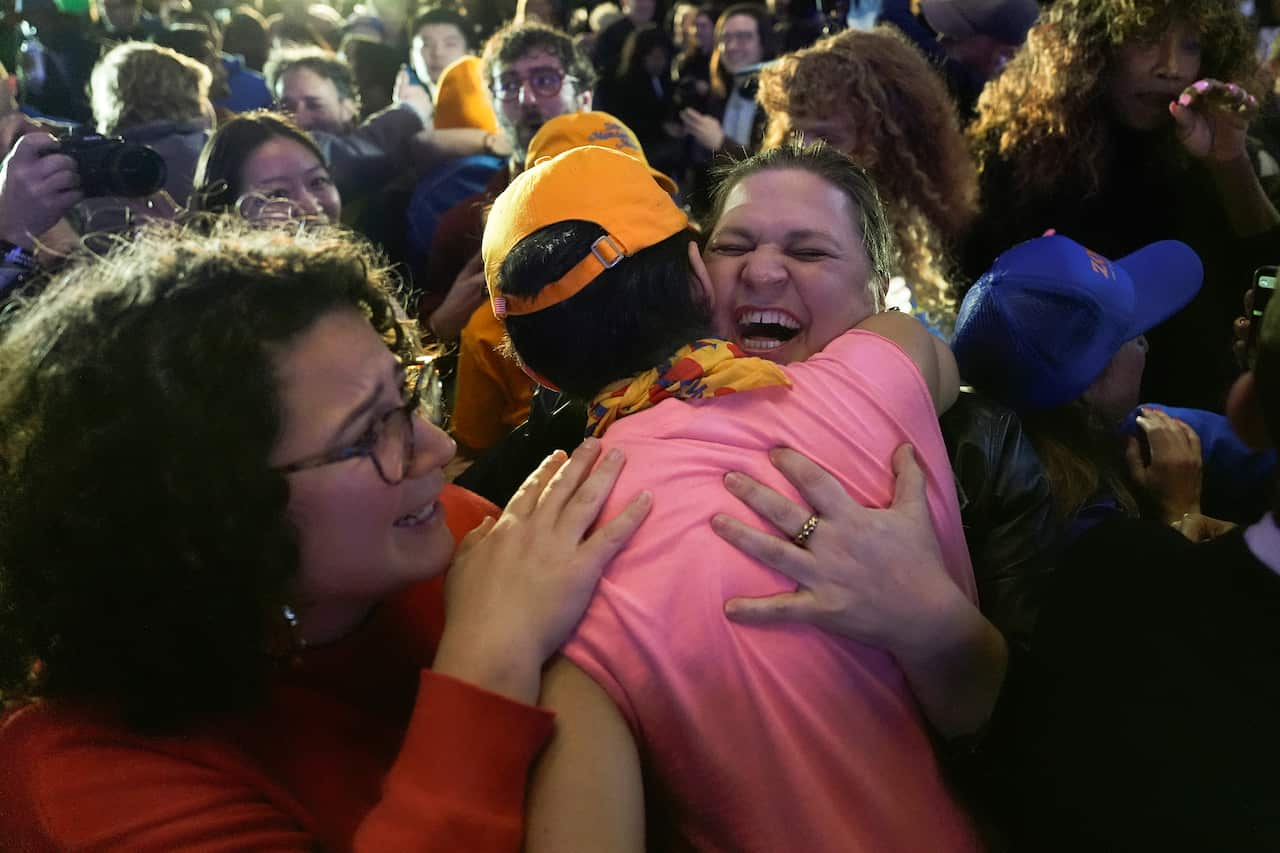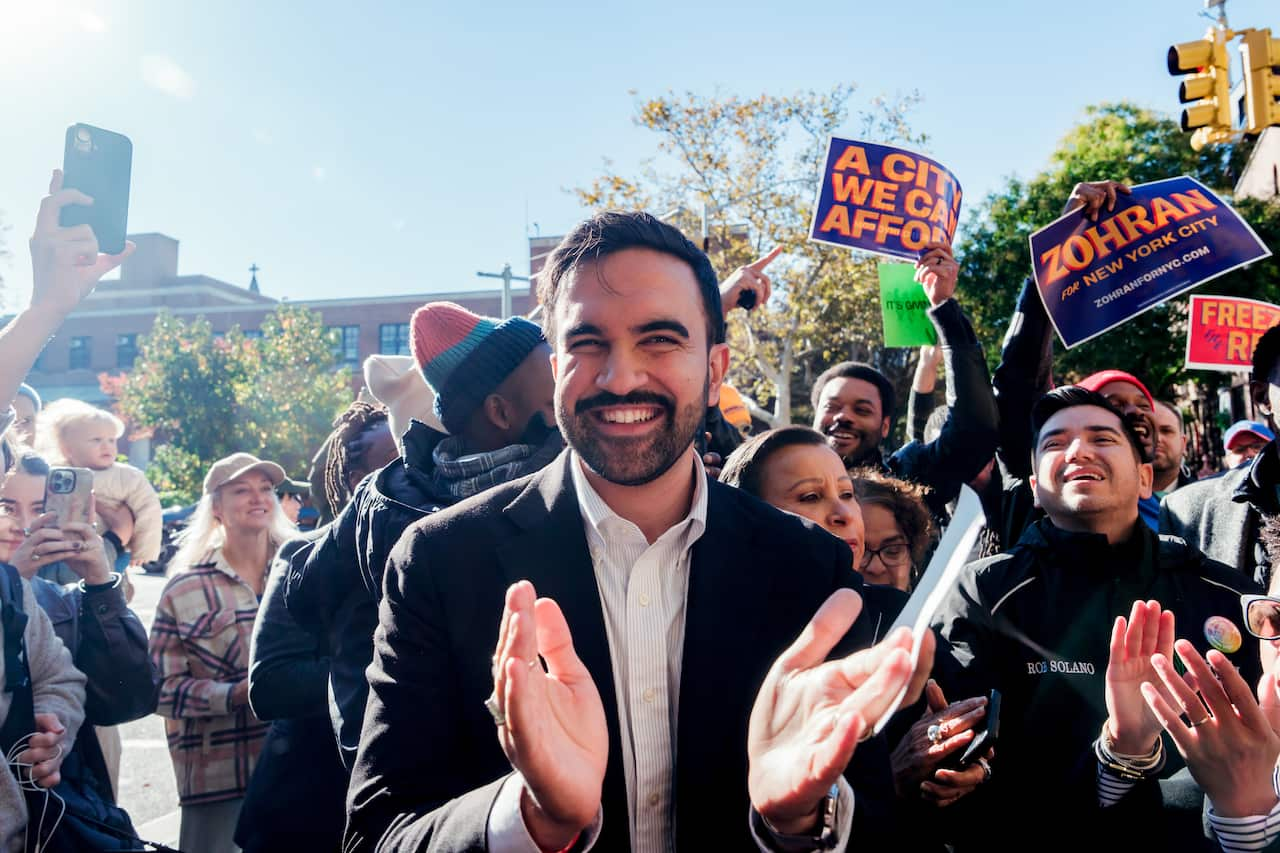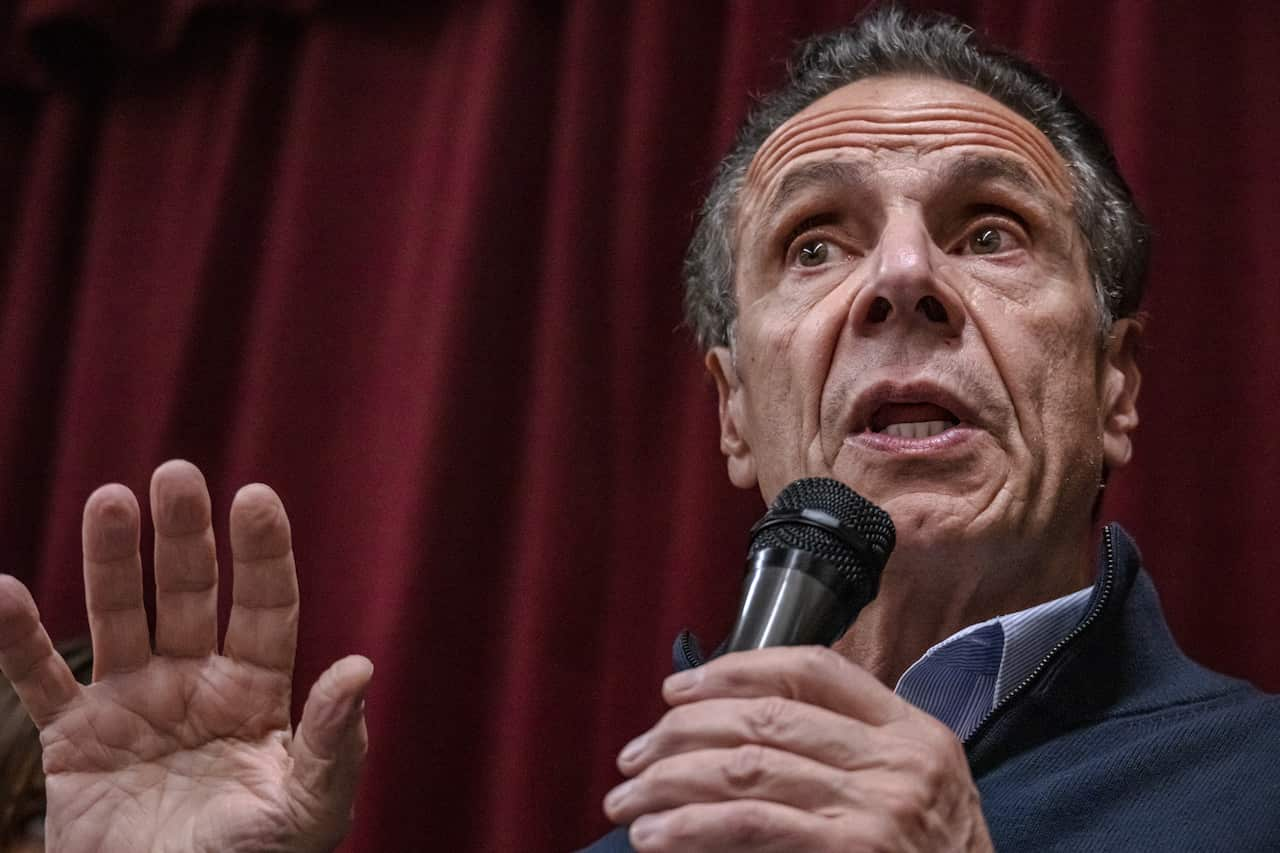Zohran Mamdani is projected to make history as the first Muslim and person of South Asian descent to be elected mayor of New York City.
The Associated Press, Decision Desk HQ and other US outlets called the race for the 34-year-old democratic socialist within an hour of polls closing.
His main rival was 67-year-old Andrew Cuomo, a former Democrat who ran as a more centrist independent after losing to Mamdani in the primary, four years after resigning as New York state's governor in disgrace.
Mamdani's election as New York mayor caps an extraordinary rise for the leftist state politician who emerged from relative obscurity to lead a supercharged campaign for the US megacity's top job.
His victory came in the face of fierce attacks on his policies and Muslim heritage from President Donald Trump, business elites and conservative media.

"If anyone can show a nation betrayed by Donald Trump how to defeat him, it is the city that gave rise to him. And if there is any way to terrify a despot, it is by dismantling the very conditions that allowed him to accumulate power," Mamdani told a raucous crowd of supporters.
"So Donald Trump, since I know you're watching, I have four words for you: turn the volume up."
Mamdani, a state assembly member for New York's Queens borough, appealed to voters by pledging to tackle the soaring cost of living, offering free city bus travel, childcare and city-run grocery stores.
He focused on living costs facing ordinary New Yorkers, building support through his informal personal style, social media savvy and a massive canvassing ground game.
Who is Zohran Mamdani?
Mamdani was born in Uganda to a family of Indian origin and has lived in the United States since he was seven, becoming a naturalised US citizen in 2018.
He is the son of filmmaker Mira Nair and Mahmood Mamdani, a professor and respected Africa expert — leading some of his detractors to call him a "nepo baby".
He followed a path paved by other youngsters from elite liberal families, attending the elite Bronx High School of Science followed by Bowdoin College in Maine, a university seen as a bastion of progressive thought.
Under the alias Young Cardamom, he ventured into the world of rap in 2015, influenced by hip-hop group Das Racist, which had two members of Indian origin who played with references and tropes from the subcontinent.

Mamdani's attempt to break into the competitive world of professional music did not last, with the performer-turned-politician calling himself a second-rate artist.
He took an interest in politics when he learned that rapper Himanshu Suri, who performed under the alias Heems, was supporting a candidate for city council — and joined that campaign as an activist.
Mamdani went on to become a foreclosure prevention counsellor, helping financially struggling homeowners avoid losing their homes.
He was elected in 2018 as an assembly member from Queens, a melting pot of predominantly poor and migrant communities, representing the area in the New York State Assembly.
What are Mamdani's main policies?
The self-proclaimed democratic socialist, who has been re-elected three times, forged an image that has become his trademark — a progressive Muslim just as comfortable at a Pride march as he is at an Eid banquet.
He put the goal of making the city affordable for everyone who is not wealthy — the majority of its approximately 8.5 million residents — at the heart of his campaign.
He has promised more rent control, free day care and buses, and city-run neighbourhood grocery stores.

Mamdani is also a long-standing supporter of the Palestinian cause, although his positions on Israel — which he has called an "apartheid regime" while branding the war in Gaza a "genocide" — have drawn the ire of some in the Jewish community.
In recent months, he has made a point of vocally denouncing antisemitism — as well as the Islamophobia he has suffered.
Mamdani is something of an establishment "outsider," according to Costas Panagopoulos, a political science professor at Northeastern University.
"He has managed to galvanise support from disaffected voters and others in New York City who are dissatisfied with the status quo and with an establishment that they perceive to be overlooking their needs and policy preferences," he said.
Mamdani, a keen football and cricket fan, recently married US illustrator Rama Duwaji, and put his experience of activism to work in a strategically coordinated canvassing and leaflet campaign that he has paired with an extensive and often humorous use of social media.
"He really is a kind of a hybrid of a great 1970s campaign and a great 2025 campaign," said Lincoln Mitchell, a Columbia University professor.
Democrats sweep major elections across the US
Democrats swept a trio of races on Tuesday's elections across the country — the first major elections since Trump regained the presidency — elevating a new generation of leaders and giving the beleaguered party a shot of momentum ahead of next year's congressional elections.
Besides Mamdani's win, in Virginia and New Jersey, moderate Democrats Abigail Spanberger, 46, and Mikie Sherrill, 53, won the elections for governor with commanding leads, respectively.
Perhaps the biggest practical boost to Democrats on Tuesday came out of California, where voters gave Democratic politicians the power to redraw the state's congressional map, expanding a national battle over redistricting that will shape the race for the US House of Representatives.
Tuesday's contests offered a barometer of how Americans are responding to Trump's tumultuous nine months in office. The races also served as a test of differing Democratic campaign playbooks ahead of 2026, with the party locked out of power in Washington and still trying to forge a path out of the political wilderness.
Trump refused to take any blame for Tuesday's results. In a post on his Truth Social network, he cited anonymous "pollsters" suggesting the Republican defeats were down to the government shutdown and the fact that his name wasn't on ballots.
House minority leader Hakeem Jeffries said: "Democrats are smoking Donald Trump and Republican extremists throughout the country," writing on X that "the Democratic Party is back."
For the latest from SBS News, download our app and subscribe to our newsletter.

